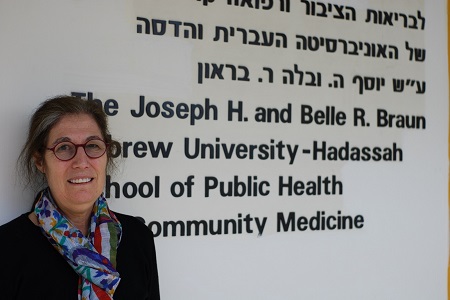
In a proposal presented to Israel’s Health Ministry, an interdisciplinary team from the Hadassah Medical Organization and peers from the Hebrew University advocates that children should return to school in a carefully managed process. The advantages, they argue, outweigh the negatives of children staying home.
The authors of this proposal include Hadassah’s infectious disease expert Prof. Ran Nir-Paz, pulmonologist Dr. Alex Gileles-Hillel, statistician Prof. Orly Manor, and from the Hebrew University – Hadassah Braun School of Public Health and Community Medicine Dr. Ora Paltiel and Dr. Ronit Calderon-Margalit.
Dr. Paltiel, an expert in hematology and epidemiology, explains that immune-compromised children and those whose parents are in high-risk groups would have to be excluded from any return to school. Likewise, teachers in high-risk groups would not be expected to return to work, and the openings would not take place in high-outbreak areas.
The proposal is not without its critics, who maintain it is too soon to open up the schools. Moreover, they argue, such premature openings can prove dangerous to society in general. However, the team studied reports from around the world on children and COVID-19 and found that the percentage of children with coronavirus is very low, particularly among those under 10 years of age. In addition, they note that their research suggests children are largely not responsible for passing on the virus. The team points to a paper published this week in Singapore suggesting that in places where schools were open, there were no cases of children transmitting the virus within their families.
In the proposal, the team cites a report in Lancet Child and Adolescent Health, which argues that evidence supporting the closing of schools is very weak. “Recent modeling studies of COVID-19,” the reports says, “predict that school closures alone would prevent only two to four percent of deaths, much less than other social distancing interventions.”
In Israel, childcare facilities and schools were closed early in the COVID-19 crisis. Special education resumed this week in downsized form, and there is an ongoing debate in the government as to when to re-open all schools, with some pushing for a resumption of classes on May 3.
“If children get the disease, it’s mild in the vast majority of cases,” says Dr. Paltiel. “Mortality is extremely low among children, and they are not super-spreaders. If anything, they spread the virus less than other people.”
Dr. Paltiel adds that keeping children out of school and thus making it necessary for their parents to stay home brings with it psychosocial, physical, and mental harm, in addition to economic problems that impact the family. “Children,” she says, “should be gradually allowed to go back to their educational environment. This should be done with monitoring, with caution, and with all the care in the world.”
